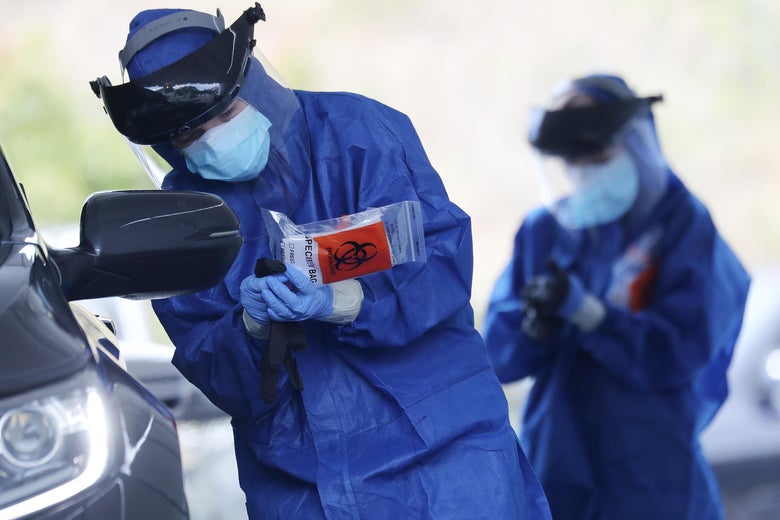
The federal government has not done a good job helping states battle the coronavirus,
providing only a fraction of the medical supplies some states requested and sometimes
even seizing supplies states and hospitals have purchased for themselves. But there is one way the federal government is offering to help: by suggesting new crimes to prosecute. The Department of Justice issued a
memo to federal law enforcement on March 24 suggesting a list of coronavirus-related crimes they should prosecute. Many of the criminal activities listed in the memo are precisely the types of crimes that federal law enforcement should target—crimes like
internet-based frauds, illegal price fixing, and Medicare fraud and abuse. Those sorts of crimes can be difficult for states to enforce because they cross state borders. It is also appropriate for the federal government to protect its own programs, like Medicare, and to target illegal schemes that affect the national economy. But the memo also included crimes that do not require any federal involvement. Most notably, it encouraged prosecution of threats to intentionally infect other people with the coronavirus. The memo claimed that the virus qualifies as a “biological agent” under federal law, so these threats could be prosecuted under a number of different federal criminal laws that carry sentences of up to five years in prison.
 The federal government has not done a good job helping states battle the coronavirus, providing only a fraction of the medical supplies some states requested and sometimes even seizing supplies states and hospitals have purchased for themselves. But there is one way the federal government is offering to help: by suggesting new crimes to prosecute. The Department of Justice issued a memo to federal law enforcement on March 24 suggesting a list of coronavirus-related crimes they should prosecute. Many of the criminal activities listed in the memo are precisely the types of crimes that federal law enforcement should target—crimes like internet-based frauds, illegal price fixing, and Medicare fraud and abuse. Those sorts of crimes can be difficult for states to enforce because they cross state borders. It is also appropriate for the federal government to protect its own programs, like Medicare, and to target illegal schemes that affect the national economy. But the memo also included crimes that do not require any federal involvement. Most notably, it encouraged prosecution of threats to intentionally infect other people with the coronavirus. The memo claimed that the virus qualifies as a “biological agent” under federal law, so these threats could be prosecuted under a number of different federal criminal laws that carry sentences of up to five years in prison.
The federal government has not done a good job helping states battle the coronavirus, providing only a fraction of the medical supplies some states requested and sometimes even seizing supplies states and hospitals have purchased for themselves. But there is one way the federal government is offering to help: by suggesting new crimes to prosecute. The Department of Justice issued a memo to federal law enforcement on March 24 suggesting a list of coronavirus-related crimes they should prosecute. Many of the criminal activities listed in the memo are precisely the types of crimes that federal law enforcement should target—crimes like internet-based frauds, illegal price fixing, and Medicare fraud and abuse. Those sorts of crimes can be difficult for states to enforce because they cross state borders. It is also appropriate for the federal government to protect its own programs, like Medicare, and to target illegal schemes that affect the national economy. But the memo also included crimes that do not require any federal involvement. Most notably, it encouraged prosecution of threats to intentionally infect other people with the coronavirus. The memo claimed that the virus qualifies as a “biological agent” under federal law, so these threats could be prosecuted under a number of different federal criminal laws that carry sentences of up to five years in prison.
No comments:
Post a Comment